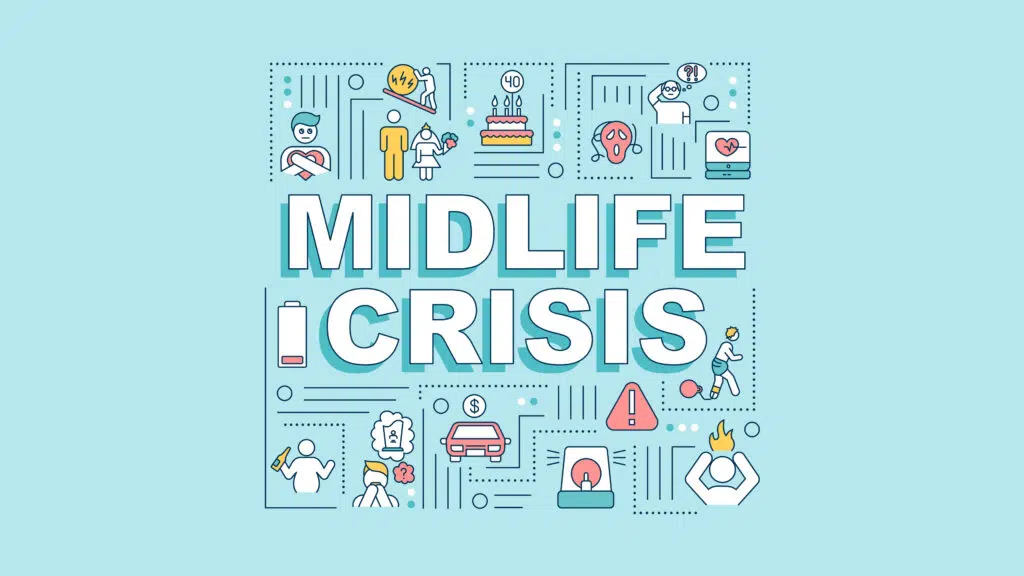What Is Stonewalling?

There is a common communication behavior among married couples that predicts divorce with at least 90% accuracy. This behavior is stonewalling, when a person shuts down and stops responding to their partner, especially during a heated argument.
Stonewalling can sometimes feel like a natural or necessary response, depending on the circumstances. However, repeated stonewalling can be damaging to a relationship. Understanding what contributes to this behavior can help partners constructively approach their conflicts.
What is Stonewalling?
When someone engages in stonewalling, they withdraw from the conversation or stop responding to the other person. Instead of tackling the conflict head-on with the other person, the stonewalling individual might shut down by physically turning away, pretending to be busy, getting on social media, or tuning out the interaction. They might also start talking to someone else or just leave the room.
In many cases, the person doing the stonewalling is not trying to be irritating or mean-spirited. Instead, they likely try to withdraw because the situation feels too emotionally overpowering. For some people, stonewalling can be a coping mechanism, a form of protection against feeling overwhelmed.
This experience, known as physiological flooding, is characterized by increased heart rates, heightened physical tension, and reduced peripheral vision. Being flooded elevates a person’s defensiveness, reduces their ability to listen, and lowers their problem-solving capacity. This state can make it difficult for the stonewalling person to shift out of their physical and emotional defensiveness. They often end up constructing an emotional wall between themselves and their partners.
How Does Stonewalling Harm a Relationship?
Repeated stonewalling can be infuriating for a partner on the receiving end. Dr. John Gottman, a psychologist and relationship researcher, refers to stonewalling as one of the Four Horsemen of the Apocalypse that threaten most relationships. He uses the “four horsemen” metaphor to explain how some prevalent communication behaviors can predict whether a relationship will end.
According to research reported by the Gottman Institute, 85% of men in heterosexual relationships stonewalled their partners. However, stonewalling was more likely to predict relational dissolution when women did it. Regardless of which partner engages in it, stonewalling can be annoying at best and psychologically damaging at worst. When done repeatedly over time, this type of shutting down can compel the other person to “check out” as well. What results is persistent conflict that never gets resolved.
What to Do If You Catch Yourself Stonewalling
If you know that you are prone to stonewalling behavior, don’t beat yourself up over it. Instead, make an effort to recognize what triggers you to tune out during intense interactions. Although it can be challenging to arrest your stonewalling in the moment, it can help to keep these strategies in mind:
Remember that stonewalling is not a good look. Imagining what stonewalling looks like might help you snap out of it or avoid it more often. Try to understand what it feels like for the other person—feeling rejected or undervalued. When giving someone else the silent treatment, you might appear like you don’t care about them or what they say.
Practice self-soothing. If you experience psychological flooding, it is not productive to resort to resentment or self-righteousness. Instead, your goal should be to alleviate the overwhelm through self-soothing. This involves doing what is necessary to regain your sense of calm before engaging the other person. You might take some breaths or politely excuse yourself while indicating that you are not permanently leaving the situation.
Remember that self-soothing is not an escape. The idea is not to flee from the conflict that triggered your stonewalling. Instead, you are simply giving your physiological responses time to calm down so that you can revisit the situation with your partner.
Signal that you need a break. If you know that you might be prone to emotional overwhelm, give yourself advance permission to step away briefly from the encounter. Dr. Gottman suggests working out a sign or word with your partner for when you need a break. Here are some things you can say when you need a pause:
- “I’m not angry with you. I’m just feeling overwhelmed right now.”
- “I need to gather my thoughts. I’ll be right back.”
- “I hear what you’re saying. We’ll get back to that in a few minutes, okay?”
Keep your break short; it should not last for more than 15-20 minutes. Express your intention to return to the conversation or issue so that your partner does not feel neglected or ignored.
What You Can Do When You Detect Your Partner is Stonewalling
Having your partner shut you out in the middle of a conversation can hurt. Understanding the source of the stonewalling and responding constructively can keep conflicts from escalating. Knowing what to do can also help you anticipate when you or your partner is likely to stonewall.
Know that it’s not about you. When your partner stonewalls you, it can feel like they’re trying to punish you. That might not be the case. For example, if you start to cry during a difficult conversation, the other person’s tuning you out may not be out of anger. Instead, they might not know how best to respond to your show of emotion. Their stonewalling is most likely because of their feelings of overwhelm, which is usually about them and not you.
Stop the argument or conversation. Gently putting a short-term halt to the discussion might suit both individuals. This strategy requires some finesse and agreement ahead of time. As previously discussed, consider deciding on a verbal and nonverbal signal to communicate the need to step back for a few minutes. Doing so can help you both remain calm and come back together.
Remember that you do not want to walk away in the middle of a conversation without warning. This response could come across as stonewalling and further intensify the conflict.
Suggest rules and boundaries. This tactic is helpful in any relationship, no matter how much or little stonewalling occurs. You and your partner might agree on some conversational boundaries ahead of time, such as allowing the other person to finish a sentence or avoiding “you always” or “you never” statements. Such rules can set expectations for healthy debates and might even prevent some instances of stonewalling from occurring.
Thriving Center of Psychology Can Help
In most relationships, conflicts can get heated, making it difficult for partners to engage in calm, productive, and loving communication. While stonewalling can sometimes occur in any relationship, it can become a form of mistreatment if someone does it often and deliberately. If stonewalling is a persistent issue in your relationship, you and your partner might consider professional help to learn more constructive ways to manage relational conflicts.
Help is available from an understanding psychologist or therapist at Thriving Center of Psychology. A mental health professional might recommend individual or couples therapy or a combination of both. Contact an office in Soho or Manhattan in New York City; Los Angeles; Miami; Minneapolis, MN; Princeton, NJ; or Portland, OR, to learn more or schedule an appointment. You can also go to the website to make an in-person or online therapy session.

How Do I Establish Healthy Boundaries
We often talk about setting healthy boundaries in the workplace, in relationships, with technology, and with ourselves. But what is a healthy boundary, why should you have them for your mental health, and what’s the best way to establish healthy boundaries? Let’s dive in.

Millennials in Crisis: Survey Finds 81% Can’t Afford a Midlife Crisis
Are Millennials a generation in crisis? Millennials are aging. The oldest in the generation is now 43, and the youngest is now 28. With age comes wisdom, but it also often leads to regret, nostalgia, and introspective questions about where people are in life. With the generation quickly approaching “middle age,” many are starting to feel these pressures.

What Are Practical Strategies for Managing Depression?
The number of U.S. adults who have been diagnosed with depression is on the rise, with young adults and women experiencing the most significant increases. We know that the effects of depression can ripple through every aspect of your life.

What Are The Benefits Of Cognitive Behavioral Therapy?
Cognitive behavioral therapy goes beyond managing the symptoms but can help address the root cause of several mental health conditions. Backed by extensive research, CBT is an evidence-based approach that is shown to be effective across various populations.

